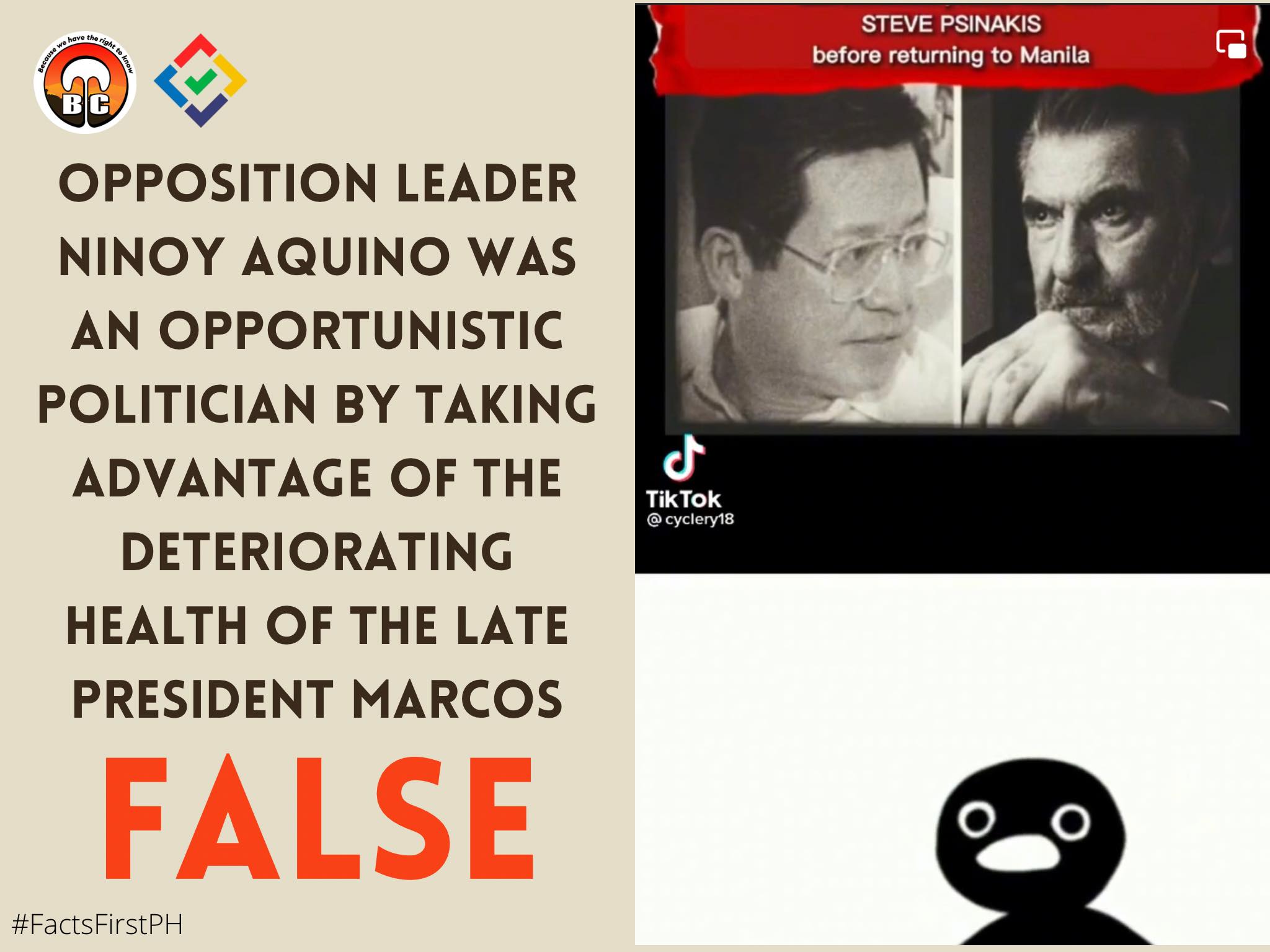Claim: Opposition leader Ninoy Aquino was an opportunistic politician by taking advantage of the deteriorating health of the late President Marcos
Rating: FALSE
The Facts: In 1983 while Ferdinand Marcos was seriously ill, to cling to power, his wife Imelda held on to power as she poised herself to become the effective successor. Ninoy Aquino’s return from exile in Boston to the Philippines was motivated by his hopes of a peaceful and democratic transition of power through elections.
Why we fact-checked this: The Facebook post reached 2.5k reactions, 325 comments, and 155k shares. This malicious post tried to revise facts and tried to malign the reputation of the late Senator Ninoy Aquino.
A video published on Facebook by a page named “I am Shanwein [https://www.facebook.com/Iamshanwein/] “reveals a conversation between the late Senator Benigno “Ninoy” Aquino, Jr. and Aquino’s friend and author Steve Psinakis.
The in-video caption alleges that Ninoy Aquino’s primary intention to return to the Philippines is to supplant the late dictator Ferdinand Marcos following the latter’s deteriorating health condition.
The spliced video, however, was published cunningly, cutting off the context of the recorded conversation.
While Ninoy Aquino used the words ‘trump cards’, it was not meant that he wanted to become Marcos’ successor. The full version of the conversation can be heard here: https://www.youtube.com/watch?v=2DMeZwC5oZY
During the Marcos regime, anybody could get into serious trouble for expressing dissent against the people in the government and its policies. The former senator knew that he will be sent directly to prison once he arrives in the Philippines.
However, there are leverages – or trump cards – that Aquino could use to make the Marcoses treat him right.
Those trump cards, as claimed by Aquino, are the following:
1. Then Prime Minister of Japan Yasuhiro Nakasone would continue providing economic assistance to the financially-ailing Philippines; and,
2. Nur Misuari would continue talks with the government if Ninoy Aquino would act as the negotiator.
Aquino was seeking a dialogue with the terminally-ill Marcos hoping to persuade him to pave way for a peaceful and democratic transition of power through an election. [https://opinion.inquirer.net/…/ninoy-aquinos-assassination] However, Aquino was gunned down upon his arrival on August 31, 1983. In his final statement, though he was unable to deliver, Aquino states, “I have returned on my free will to join the ranks of those struggling to restore our rights and freedoms through non-violence. I seek no confrontation.”
Aquino’s assassination brought people’s dissent and unrest to a broader scale.










